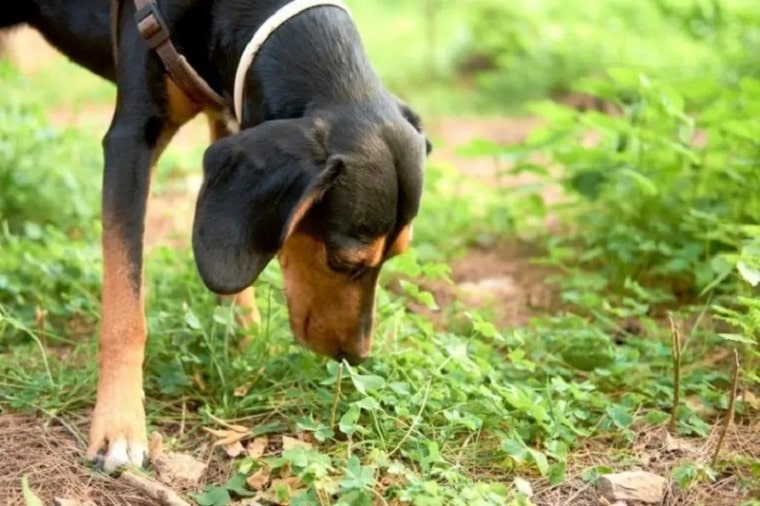
Dogs are often seen eating grass, but why do they do it? While the jury is still out on why exactly dogs eat grass, there are a few theories. Some believe that it is to supplement their diet, as grass contains nutrients that may be lacking in their regular food. Others believe that it helps them with digestion, as grass acts as a natural purgative and is also rich in enzymes. It is also possible that dogs eat grass simply because they enjoy the taste or texture.
Regardless of the reason, it is generally considered to be harmless behavior and is not something owners need to be overly concerned about if they are doing it occasionally. However, if your dog is eating large amounts of grass or if their stomach is gurgling frequently, it could be a sign of an underlying health problem. Your dog may not be feeling well and its stomach is most likely upset.
If your dog has started eating a lot of grass suddenly, it is important to take them to the vet to rule out any medical problems. Whenever you are concerned about your dog’s health, please consult your veterinarian.
Does Eating Grass Purge a Dog’s Stomach?
Many people believe dogs eat grass to soothe upset stomachs, by acting as an emetic. This is because some dogs eat grass urgently and then vomit shortly thereafter. This situation poses a chicken or egg dilemma: Does a dog eat grass to relieve their aching stomach, or does it cause them to develop a stomachache and vomit? In fact, statistics show that only 10% of dogs show signs of illness before eating grass, and fewer than 25% vomit after eating grass.
So, overall, the vast majority of grass-eating dogs usually don’t get sick before eating grass and do not vomit as a result of eating it. All things considered, it seems unlikely that grass is an emetic for most dogs. However, if your dog regularly vomits after eating grass, or if your dog repeatedly eats grass and throws up time after time, you should consult your veterinarian, as this could be a sign of underlying diseases such as intestinal problems, cancer, or liver disease.
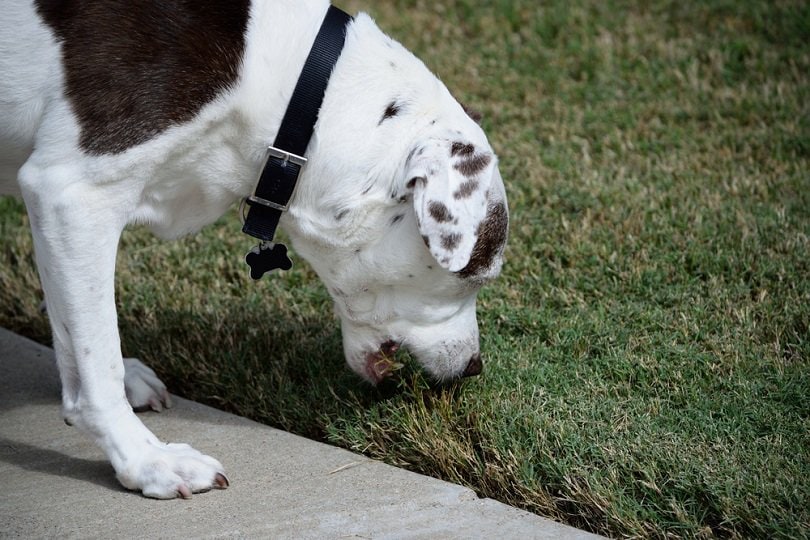
Why is My Dog’s Belly Gurgling?
If you notice your dog’s stomach is gurgling after eating grass, this is also usually nothing to worry about. A gurgling belly (scientifically known as borborygmi) is typically just a normal part of digestion and is simply food, water, and gas moving through your dog’s digestive tract. Of course, a gurgling stomach could also simply mean your pooch is hungry!
If the gurgling is on a regular basis, your dog might be experiencing digestive issues or food sensitivities. Likewise, if the gurgling is abnormally loud—you can hear it from across the room—or if you suspect your dog has ingested something strange (other than grass) and their stomach is gurgling loudly, they are showing signs of discomfort, or are not eating, you may want to check in with your vet.
The 5 Possible Reasons Why a Dog Eats Grass
1. Grass as Roughage
Dogs are carnivores by nature, but that doesn’t mean they don’t need plant matter in their diet. In fact, dogs need fiber in their diets just like humans do. Grass is a source of roughage that helps with digestion. A dog with a lack of roughage may have trouble digesting food and passing stool, so grass may actually aid their digestion. A diet that is high in fiber helps to keep the digestive tract moving, which is important for both digestion and preventing constipation.
Grass is an easy source of fiber for dogs, and it may help to improve their digestive health. There are a few other signs that your dog may lack fiber in their diet. These include:
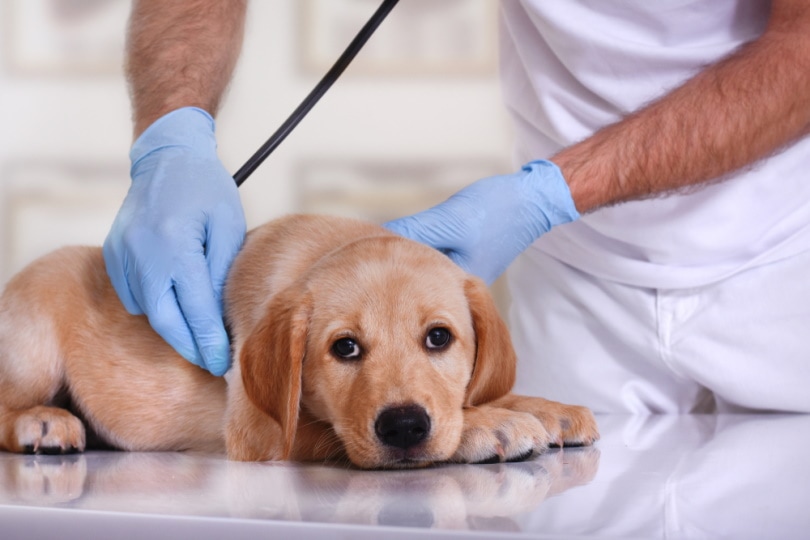
2. A Sign of Anxiety
It is also possible that your dog eating grass is a sign of anxiety. For instance, a dog that is apprehensive may begin to sniff or even eat grass when another dog or person approaches them. It is possible for grass-eating to become a regular anxiety response for your dog, much like seeing a human chewing on their nails or twirling their hair. If it is the case that your dog has anxiety, talk to your veterinarian about the best treatment, such as specialized training. A dog that is anxious may also show the following signs:
3. Boredom
Another theory is that dogs eat grass simply because they’re bored. Dogs need mental and physical stimulation to stay happy and healthy. If they’re not getting enough of either, they may start eating grass out of curiosity. Boredom is often the root cause of many bad behaviors in dogs. It’s important to know the signs of boredom so you can address it before it leads to more serious problems. Other signs of boredom in dogs include destructive chewing, excessive barking, digging, and restlessness.
If you see any of these signs, it’s important to take action. The best way to combat boredom is with daily exercise and mental stimulation. Take your dog for walks or runs and give them plenty of toys to keep their mind active.
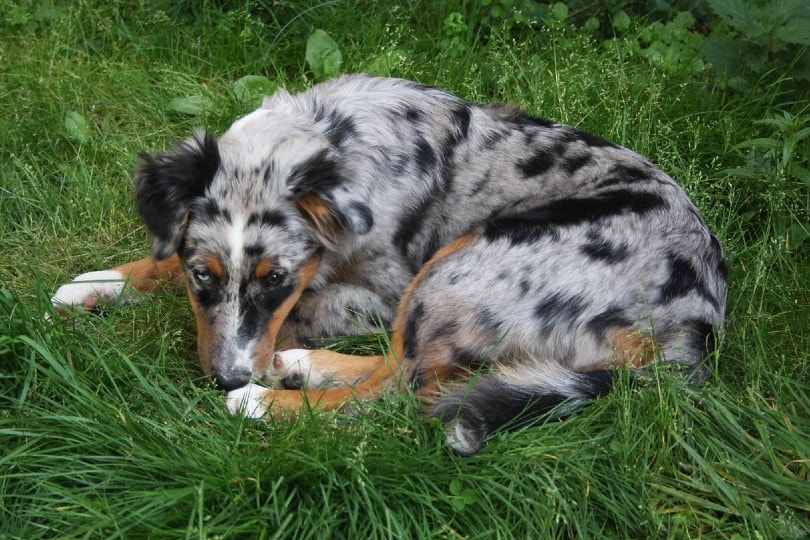
4. It Tastes Good
Despite the common misconception that all dogs eat grass because they are sick, there is a much more likely chance that dogs eat grass because they enjoy the taste of it, especially when it is green and fresh during the spring and summer months. Some believe that grasses contain essential oils that are palatable to canines. Others assert that dogs simply enjoy the crunchy texture of fresh, green grass. Whatever the reason, there’s no need to worry if you see your dog munching on some grass from time to time.
In small amounts, occasionally, there is nothing wrong with this behavior, and it is not indicative of any underlying health issue.
5. Instinctual Behavior
Some say that eating grass is an instinctual behavior that dates back to dogs’ ancestors, the wolves. In the wild, wolves are scavengers and will eat just about anything they can find in order to survive. This includes eating grasses and other plants. So, while your dog may not be consciously aware of it, their instincts are telling them to eat grass.
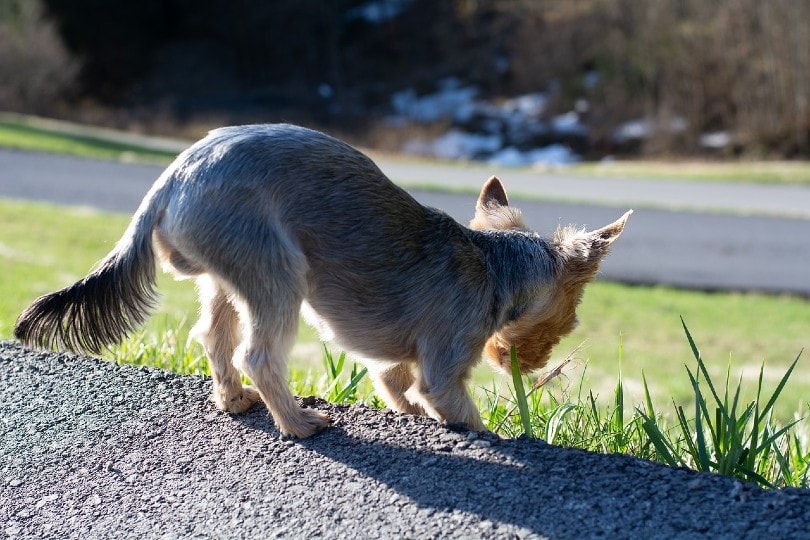
Be Aware of Pesticides and Herbicides
Dogs can accidentally ingest pesticides and herbicides while eating grass. Ingesting even a small amount of these chemicals can be dangerous for dogs, and can lead to symptoms such as vomiting, diarrhea, and seizures. In some cases, it can even be fatal. If you suspect that your dog has ingested any kind of pesticide or herbicide, it is important to seek veterinary care immediately.
There are some simple steps you can take to help prevent your dog from accidentally ingesting these chemicals, including avoiding using them on your own property and keeping your dog on a leash when walking in areas where they may have been used.
Conclusion
In conclusion, there are many reasons why your dog may be eating grass. Some of these reasons include boredom, hunger, anxiety, and digestive issues. If you’re concerned about your dog’s health, talk to your veterinarian. They can help you determine if there is an underlying health condition causing your dog to eat grass and make recommendations for treatment.
See also:
Featured Image Credit: Wirestock Images, Shutterstock








